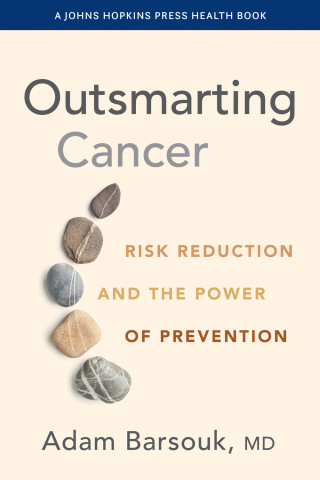
Reviews
A well-researched textbook that draws on lots of aspects of symptom management in palliative care.
Dr. Abrahm expands on her excellent coverage of symptom management and includes new chapters to address complex psychosocial topics.
Every healthcare professional needs this book. A practical and concise guide, it is an excellent resource that should be used to prevent and treat suffering as healthcare professionals accompany the patient and family through the experience of living with cancer.
This is an important, intelligent, and well-researched book, which includes a bibliography for clinicians and one for patients. It is written with genuine concern for patients and should be particularly useful to clinicians who wish to enhance their relationships with patients and their families.
This book is an incredible resource for all clinicians, chaplains, students and others who care for patients with cancer. The writing style is inviting, conveying the 'facts' of care in a holistic, patient-centered narrative. Filled with excellent easily accessible resources, each chapter has brief practice points that enable translation of knowledge into daily clinical care. This is the book you keep on your shelf or e-reader to refer to over and over again.
Osler said that there is no substitute for the wisdom gleaned from the consistent, thorough care of patients. This book is proof of that in the subspecialty of supportive and palliative care for patients with cancer. Dr. Abrahm is a wise, seasoned clinician with the skill to write clearly and persuasively enabling others to do likewise. Those wishing to be the best in this new field can do no better than be tutored by her in this 4th edition of her well-loved treatise. This book will give you the feeling that you have Dr. Abrahm at your elbow, teaching, guiding, and coaching.
The 4th edition of A Comprehensive Guide to Supportive and Palliative Care for Patients with Cancer is a superb 'go-to' guide for all clinicians caring for patients with cancer and their families. Written by experts in palliative care, family dynamics, sexuality, spirituality, and psychiatry, Dr. Abrahm and her collaborators provide accessible answers to the unique communication and symptom management challenges with attention to the cultural differences present throughout the world. Everyone, including palliative care experts, will find new tools and strategies that will surprise and empower you!
This is truly a comprehensive reference that is a thorough guide to all aspects of supportive care in cancer. A draft manuscript of the book's first edition helped me through my palliative care fellowship years ago, and I continue to rely on it today.
Comprehensive Supportive and Palliative Care for Patients with Cancer's newly revised fourth edition, with its expanded title and content, showcases Dr. Abrahm's and her colleagues' exceptional expertise in combining the teaching of the science of effective communication skills and clinical management of complex physical, psychological and spiritual symptoms with their consummate understanding of the art of caring for the seriously ill cancer patient and family. It is a uniquely readable text using clinical anecdotes to emphasize fact-based information, state of the art assessment tools and scales, and access to a multimedia website with a range of detailed educational resources together providing the critical elements of the essential core curriculum for all clinicians working interprofessionally in oncology.
When caring for people with cancer, challenges arise in communications and symptom management for which there are practical and compassionate approaches and solutions. This comprehensive guide provides specific strategies, tools, and guidance for clinicians to support their patients, teams and themselves through the cancer care continuum. I enthusiastically recommend it to oncologists and all who care for oncology patients and their families.
This book goes beyond the traditional focus on pain and symptom management and includes expert collaborators while still maintaining a unified style that makes it enjoyable to read. It represents a wonderful introduction to supportive and palliative care for all clinician. Strongly recommended!
Dr. Abrahm's experience as a nationally recognized medical oncologist and palliative care expert comes to life in the newest edition of her book. Although previous editions were similarly replete with compelling patient stories, this latest edition includes additional material beneficial for social workers, psychologists, bereavement counselors, and chaplains. Even lay people will find value in Dr. Abrahm's words of wisdom. A must-read for any healthcare trainee or health professional seeking to care for the patient, not just the cancer.
I've had the enormous privilege of working side by side with great palliative care clinicians in Boston throughout my career, and now you can too! Dr. Abrahm is not only an invaluable resource to us in Boston, but now through this book to all practicing oncologists. You'll want this book at the ready for immediate access.
Since its first edition, Dr. Abrahm's book has been one of my 'go to' resources when I am trying to think comprehensively about a complex cancer patient. I can always find something here that I haven't thought of—or that I've forgotten—that enhances my strategic approach to patient care. This is a core resource for all learners who pursue excellence in managing the symptoms of patients with cancer. I look forward to every new edition to enhance my practice.
Janet Abrahm and her colleagues have written a humane, sensible, comprehensive, and expert interdisciplinary guide to palliative and supportive care for cancer patients. The book is well-balanced, providing expert perspectives on both symptom management and the psychological, social, and spiritual tasks of clinical care, emphasizing the critical role of teamwork. The book emphasizes the powerful role of effective communication as a mediator of clinical outcomes, and provides approaches to support clinicians in these key tasks, including self-care. This is the book I would want my clinicians to have read and internalized when I have to face this phase of life.
Book Details
List of Figures and Tables
List of Contributors
Acknowledgments
Introduction
Part I. A Team Approach
Chapter 1. Early Days with Molly E. Collins, MD
Chapter 2. Working with Patients' Families with Arden O
List of Figures and Tables
List of Contributors
Acknowledgments
Introduction
Part I. A Team Approach
Chapter 1. Early Days with Molly E. Collins, MD
Chapter 2. Working with Patients' Families with Arden O'Donnell, MPH, MSW, LICSW, APHSW-C
Chapter 3. Spiritual Care in Palliative Care with Rev. Katie Pakos Rimer, MDiv, EdD, BCC
Chapter 4. Sexuality, Intimacy, and Cancer with Amanda Moment, MSW, LICSW
Chapter 5. Advancing Disease with Molly E. Collins, MD
Part II. Pain Control, Symptom Management, and Psychological Considerations
Chapter 6. Assessing the Patient in Pain
Chapter 7. Pharmacologic Management of Cancer Pain
Chapter 8. Nonpharmacologic Strategies in Palliative Care
Chapter 9. Psychological Considerations with Hermioni L. Amonoo, MD, MPP
Chapter 10. Managing Other Distressing Problems
Part III. End of Life and Bereavement
Chapter 11. Approaching the End: Concerns of Patients and Their Families at the End of Life
Chapter 12. The Last Days
Chapter 13. Bereavement with Bethany-Rose Daubman, MD
Index








